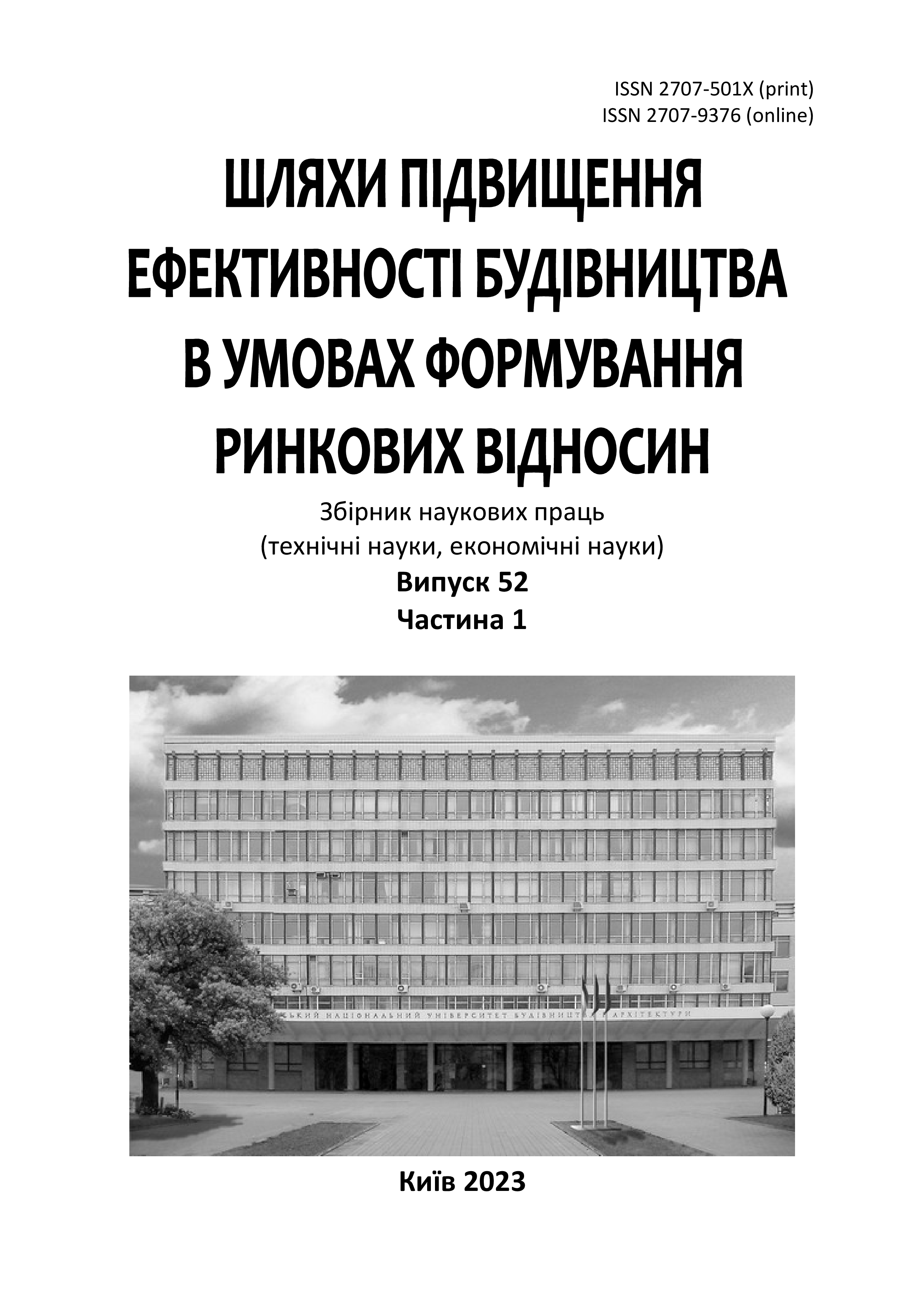Enhancing resource management in building restoration through the use of Artificial Intelligence
DOI:
https://doi.org/10.32347/2707-501x.2023.52(1).62-72Keywords:
construction organization, city restoration, artificial intelligence, calendar planning, logistic management, resource provisioningAbstract
In construction, modern technologies are becoming a key factor in achieving resource conservation and improving efficiency. The application of artificial intelligence not only reduces resource consumption but also creates opportunities for optimizing the design processes and organizing construction production. Monitoring systems for the construction process, along with the implementation of advanced IT technologies in the construction industry, contribute to increased accuracy and speed of work execution. This innovative approach to construction not only promotes resource conservation but also creates essential conditions for the sustainable development of the industry.
In the construction industry, where a traditional approach prevails, the implementation of artificial intelligence poses a challenge due to the absence of prior practice. As this technology is cutting-edge, a detailed study and practical testing are necessary to elucidate its potential advantages in the construction process. In the future, with the advancement of the industry, the use of artificial intelligence in construction could become a key factor in improving resource conservation, calendar planning, optimizing processes, and refining project management strategies.
The purpose of this article is to develop an understanding of the impact of artificial intelligence on calendar planning and its potential application in post-conflict city rebuilding. In contemporary times, artificial intelligence is becoming an increasingly crucial tool in various fields, including project management, industry, and the economic components of post-crisis situations. Its high potential can contribute to addressing issues related to the reconstruction of cities affected by conflicts. Intelligent algorithms can effectively analyze and optimize calendar plans, considering various factors such as available resources, residents' needs, infrastructure, and more. This will enable the development of precise and efficient recovery strategies, ensuring optimal resource utilization and maximum social impact.
References
Senjak M.,Terzic M., et al. Improving construction projects and reducing risk by using artificial intelligence. Social informatics journal, 2023, 2(1). Р. 33-40.
Holzmann V., Lechiara M. Artificial Intelligence in Construction Projects: An Explorative Study of Professionals’ Expectations. European Journal of Business and Management Research. 2022. №7. Р. 151-162.
Теличко В.С. Використання штучного інтелекту та інтернету речей у повоєнному розвитку України. Проблеми сучасних трансформацій. Серія: право, публічне управління та адміністрування. 2023. №9. https://doi.org/10.54929/2786-5746-2023-9-02-12
Живцова Л.І. Штучний інтелект: сутність та перспективи розвитку. Український журнал будівництва та архітектури. 2023. № 3 (015). С. 66-71.
Київська К.І., Цюцюра С.В., Кулеба М.Б. Аналіз застосування штучного інтелекту в BIM-технологіях. Управління розвитком складних систем. 2020. № 43. С. 97–103. http://doi.org10.32347/2412-9933.2020.43.97-103.
Pifko H., Krauskova V. Use of Artificial Intelligence in the Field of Sustainable Architecture: Current Knowledge. Architecture Papers of the Faculty of Architecture and Design STU. 2021. №1. Р. 20-29. https://doi.org/10.2478/alfa-2021-0004
Boute R., Udenio M. AI in Logistics and Supply Chain Management. Available at SSRN: https://ssrn.com/abstract=3862541or http://doi.org/10.2139/ssrn.3862541
Wu R. Application of AI in Construction. Applied and Computational Engineering. 2023. №8. Р. 98-102.
Zhang Lin, Liu Yong, Li Junyong. Application of artificial intelligence technology in housing construction. Smart City. 2021. №14. Р. 32-33.
Wu R. Application of AI in Construction. Applied and Computational Engineering. 2023. №8. Р. 98-102. https://doi.org/10.54254/2755-2721/8/20230090.
Downloads
Published
How to Cite
Issue
Section
License

This work is licensed under a Creative Commons Attribution 4.0 International License.
Authors who publish with this journal agree to the following terms:
- Authors retain copyright and grant the journal right of first publication with the work simultaneously licensed under a Creative Commons Attribution License that allows others to share the work with an acknowledgement of the work's authorship and initial publication in this journal.
- Authors are able to enter into separate, additional contractual arrangements for the non-exclusive distribution of the journal's published version of the work (e.g., post it to an institutional repository or publish it in a book), with an acknowledgement of its initial publication in this journal.
- Authors are permitted and encouraged to post their work online (e.g., in institutional repositories or on their website) prior to and during the submission process, as it can lead to productive exchanges, as well as earlier and greater citation of published work (See The Effect of Open Access).

